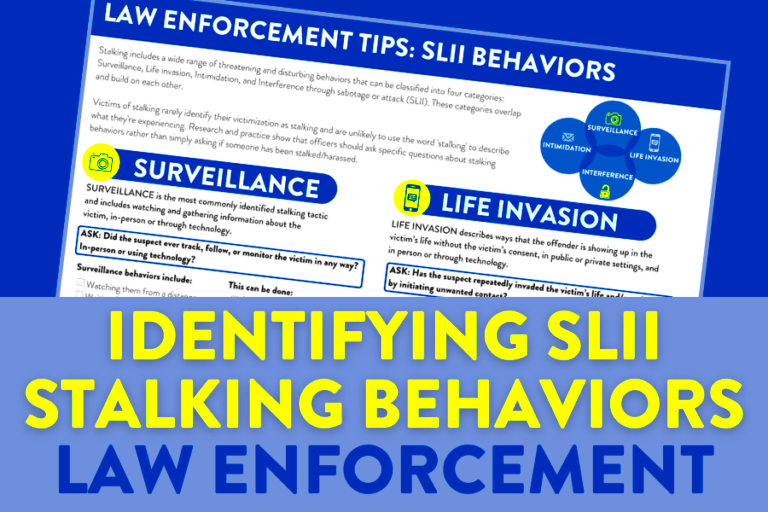Arizona’s Stalking Prevention Law Explained
Arizona’s Stalking Prevention Law is designed to protect individuals from unwanted and harmful behavior. This law aims to create a safe environment by addressing stalking and its various forms. Stalking can have serious emotional and psychological impacts on victims. In this blog post, we will explore the specifics of the law, including what constitutes stalking, the types of behaviors that fall under this definition, and the resources available for victims.
Definition of Stalking in Arizona

In Arizona, stalking is defined as a pattern of behavior directed at a specific person that causes them to feel fear or distress. According to Arizona Revised Statutes (ARS) § 13-2923, stalking can involve various actions that invade someone’s privacy or create a threat to their safety. To be classified as stalking, the behavior must occur repeatedly over time.
Some key elements of the definition include:
- Intent: The stalker must intend to cause fear or emotional distress.
- Repetitive Behavior: The actions must happen on more than one occasion.
- Victim’s Perception: The victim must feel threatened or frightened by the actions.
Understanding this definition is crucial for recognizing stalking behavior and taking appropriate action.
Types of Stalking Behavior
Stalking can manifest in various forms, and it’s important to recognize these behaviors. Here are some common types of stalking behavior:
- Physical Stalking: This involves following the victim, showing up uninvited at their home or workplace, or monitoring their movements.
- Online Stalking: Also known as cyberstalking, this includes sending unwanted messages, hacking into accounts, or spreading rumors online.
- Emotional Stalking: This can involve manipulating the victim’s emotions, such as through threats or coercive behavior.
- Harassment: This includes persistent unwanted communication, such as phone calls, texts, or social media messages.
- Threats of Violence: Direct or indirect threats to harm the victim or their loved ones fall under this category.
Recognizing these behaviors is the first step in addressing stalking and ensuring the safety of victims.
Legal Consequences of Stalking
Stalking is taken very seriously in Arizona, and the legal consequences can be quite severe. If someone is found guilty of stalking, they may face both criminal and civil penalties. Understanding these consequences can help victims take appropriate action and deter potential stalkers.
Here are some potential legal outcomes for stalking:
- Criminal Charges: Stalking can be classified as a misdemeanor or a felony, depending on the severity and circumstances. A first offense is typically a class 1 misdemeanor, but repeat offenses can lead to felony charges.
- Imprisonment: If convicted of felony stalking, the offender may face significant jail time. For misdemeanors, the maximum sentence can be up to six months in jail, while felonies can lead to years of imprisonment.
- Fines: Offenders may be required to pay fines, which can range from hundreds to thousands of dollars, depending on the nature of the crime.
- Restitution: Courts may order offenders to pay restitution to victims for expenses incurred due to the stalking, including medical bills and lost wages.
- Criminal Record: A conviction will result in a permanent criminal record, which can impact employment opportunities and housing applications.
These consequences highlight the seriousness of stalking and the importance of taking legal action if you or someone you know is affected.
How to Obtain a Stalking Order of Protection
If you feel threatened or unsafe due to someone’s behavior, obtaining a stalking order of protection can be a vital step in ensuring your safety. This legal document prohibits the stalker from contacting or coming near you.
Here’s a step-by-step guide on how to obtain a stalking order of protection in Arizona:
- Gather Evidence: Collect any evidence of stalking behavior, such as text messages, emails, or photographs. Document dates, times, and specific incidents.
- File a Petition: Visit your local court to file a petition for an order of protection. This usually involves filling out specific forms detailing your situation.
- Attend a Hearing: A judge will schedule a hearing to review your petition. Be prepared to explain your situation and present your evidence.
- Obtain the Order: If the judge finds sufficient evidence, they will issue the order of protection, outlining restrictions on the stalker’s behavior.
- Serve the Order: Ensure the stalker is formally notified of the order. This can typically be done through law enforcement.
Obtaining an order of protection can provide you with peace of mind and legal backing to help you feel safe.
Rights of Victims Under the Law
In Arizona, victims of stalking have specific rights that are designed to protect them and ensure they receive the support they need. Knowing these rights can empower victims to take action and seek help.
Here are some important rights that victims of stalking have:
- Right to Safety: Victims have the right to live without fear and to take necessary steps to protect themselves.
- Right to Report: Victims can report stalking behavior to law enforcement and have their complaints taken seriously.
- Right to Seek Protection: Victims can seek orders of protection or injunctions against harassment, which legally restrict the stalker’s behavior.
- Right to Counseling: Victims have the right to access counseling services to help cope with the emotional impact of stalking.
- Right to Information: Victims can request information about their case and the legal process, including updates on the offender’s status.
These rights are crucial for supporting victims and helping them reclaim their sense of safety and security.
Resources for Stalking Victims
If you or someone you know is experiencing stalking, it’s essential to know that there are resources available to help. Numerous organizations and services can provide support, information, and guidance on how to deal with stalking situations effectively.
Here are some valuable resources for stalking victims in Arizona:
- Local Law Enforcement: Always report stalking to your local police department. They can take immediate action and help you file a report.
- National Domestic Violence Hotline: You can call 1-800-799-SAFE (7233) for confidential support and guidance, available 24/7.
- Arizona Coalition to End Sexual and Domestic Violence: This organization offers resources, advocacy, and support for victims of stalking and domestic violence. Visit their website for more information.
- Victim Advocacy Programs: Many counties in Arizona have victim advocacy programs that can provide legal assistance, emotional support, and safety planning.
- Crisis Centers: Local crisis centers can offer counseling, emergency shelter, and support groups for victims of stalking.
Accessing these resources can make a significant difference in a victim’s ability to cope and recover from stalking situations. Remember, you’re not alone, and help is available.
FAQ About Arizona’s Stalking Prevention Law
When it comes to understanding Arizona’s Stalking Prevention Law, many questions may arise. Here are some frequently asked questions to clarify common concerns:
- What is the legal definition of stalking in Arizona?
Stalking is defined as a pattern of behavior directed at a specific person that causes them to feel fear or emotional distress. - How can I prove that I am being stalked?
Collect evidence such as text messages, emails, and documentation of incidents to demonstrate a pattern of stalking behavior. - What should I do if I believe I am being stalked?
It’s crucial to report the behavior to law enforcement and consider seeking a stalking order of protection. - Can I get a stalking order of protection without a lawyer?
Yes, individuals can file for a stalking order of protection without a lawyer, but legal guidance can be beneficial. - What are the penalties for stalking in Arizona?
Stalking can result in misdemeanor or felony charges, leading to fines, imprisonment, or both, depending on the circumstances.
These FAQs provide a foundational understanding of stalking laws in Arizona and highlight the importance of taking action if you feel threatened.
Conclusion on the Importance of Stalking Prevention
Stalking is a serious issue that affects many individuals, and understanding the laws and available resources is crucial for prevention and intervention. Arizona’s Stalking Prevention Law is designed to protect victims and hold offenders accountable. By raising awareness about stalking behaviors, encouraging victims to seek help, and supporting legal measures, we can work together to create a safer environment for everyone.
It’s important for communities to recognize the signs of stalking and provide support to those affected. Whether through legal channels or community resources, there is hope and help available for victims. Remember, you are not alone, and taking the first step towards addressing stalking can lead to a safer future.


